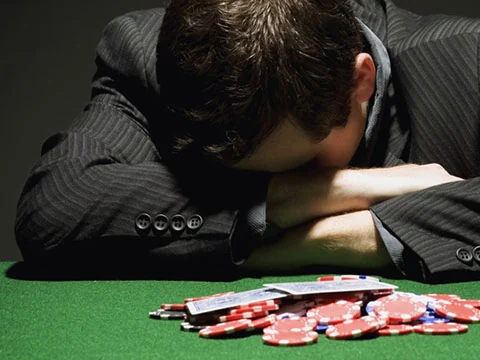The phenomenon of pathological game: when the gamble becomes a problem

When gambling escapes any control, it can transform itself not only into a vice, but into a real disease (ludopathy).
According to statistics, behavioral pathologies related to gambling affects a number of individuals between 0.5% and 2.2%, out of a total of about 25 million players (occasional and habitual).
Playing constantly or betting high amounts is not in itself a symptom of dependence, there are habitual players in fact that rigorously establish the sums to be used and play for fun rather than to pursue at any cost "the winning that changes life". The symptoms of dependence are rather uncontrolled and impulsive desire to play, irritability when you cannot do it and the need to constantly increase the stakes to have ever stronger stimulinull It is important to note that an addiction can be developed even when you win: obtaining a big sum could trigger a mechanism in which the player begins to invest more and more money and time in search of increasingly high winnings.
The consequences of a game addiction can be very seriousnull If in an initial phase they manifest themselves as a negation of the problem, irritability and social isolation, in the subsequent phases they can be manifested as a removal from the family, debt to finance the game, panic and strong social discomfort. In extreme cases, you can also think about committing illegal actions and suicide.
Solving a pathological game problem is not simple, but the first steps are the acceptance of the problem by the problematic player himself (or his friends/family) and the request for help to people and organizations specialized in this type of problem.
Test: what kind of player are you?
20 simple questions to evaluate what relationship you have with gambling.
This simple and fast test, published on the website of the anonymous players association, aims to highlight the attitude towards the game. According to reports from the Association, Compulsive players answer "yes" to 7 or more of the proposed questionsnull In the event that you answer "yes" to more than 3 or 4 questions, it may be appropriate to evaluate your relationship with the game well and possibly ask for help.
- Have you ever removed time from work for the game?
- Has the game ever made relationships with your problematic or unhappy family members?
- Did the game damage your reputation?
- Have you ever tried a sense of remorse after playing?
- Have you ever played in search of winnings to solve economic problems or to pay debts?
- Did the game cause you a decrease in ambition or efficiency?
- Have you ever felt the need to return to play to recover a loss?
- Have you ever felt the need, after a win, to play to win more?
- Have you ever played up to the last euro you had available?
- Have you ever asked for loans to finance the game?
- Were you reluctant to use the money destined for the game for other purposes?
- Has the game ever made you put aside the needs of your family?
- Have you ever played longer than you planned?
- Have you ever played to move away from problems?
- Have you ever thought about committing illegal acts to finance the game?
- Have you ever had difficulty sleeping because of the game?
- Have difficulty and frustrations ever pushed you to gambling?
- Have you ever sold something to get money to play?
- Have you ever felt pushed to celebrate happy moments playing?
- Have you ever thought about damaging yourself as a result of the game?
